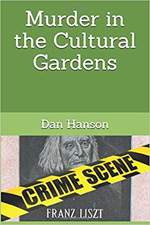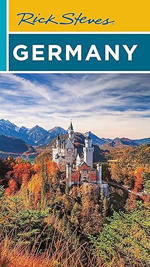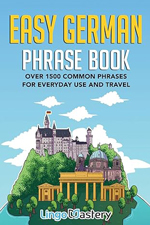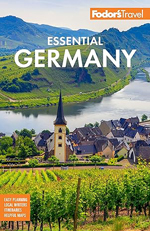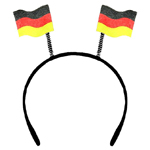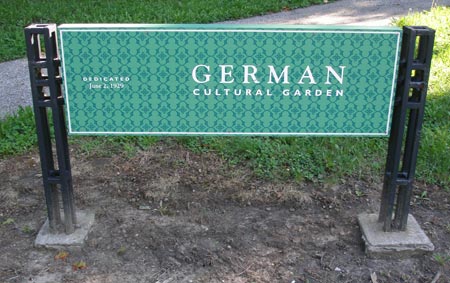The German Cultural Garden was dedicated June 2, 1929
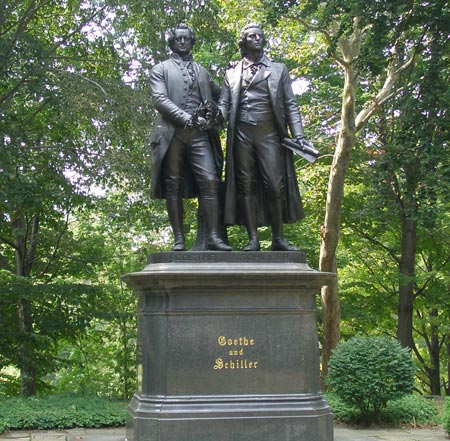
Johann Wolfgang von Goethe (1749-1832) was a German poet, novelist, playwright, courtier, and natural philosopher who may be best known for his poetic drama in two parts, Faust.Johann Christoph Friedrich von Schiller (1759-1805) was a foremost German dramatist and, along with Goethe, a major figure in German literature's Sturm und Drang (Storm and Stress) period.
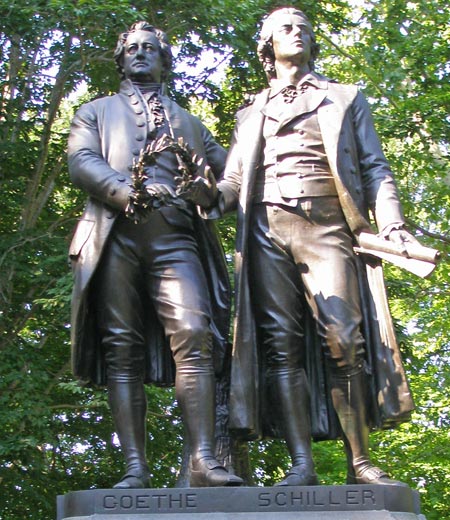
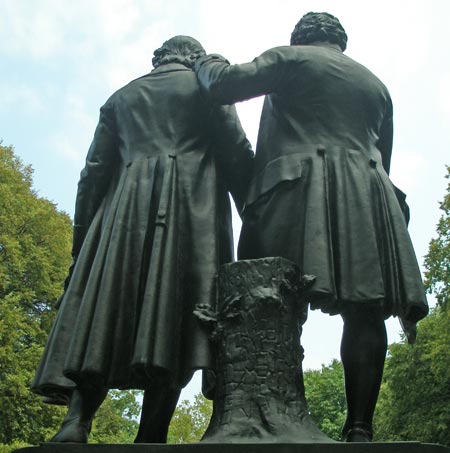
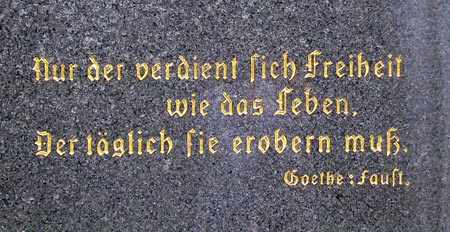
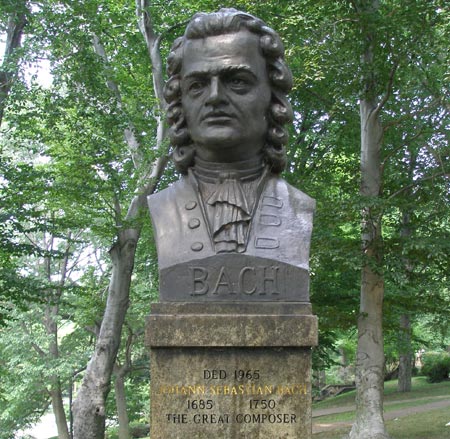 Johann Sebastian Bach (1685-1750) Johann Sebastian Bach (1685-1750)
"The Great Composer." Bach's works include the Brandenburg concertos, the Goldberg Variations, the English Suites, the French Suites, the Partitas, the Well-Tempered Clavier, the Mass in B Minor, the St. Matthew Passion, the St. John Passion, the Magnificat, The Musical Offering, The Art of Fugue, the Sonatas and Partitas for violin solo, the Cello Suites, more than 200 surviving cantatas, and a similar number of organ works, including the celebrated Toccata and Fugue in D Minor.

Heinrich Heine (1797-1856)
Heine was a Romantic poet and writer. Heine is best known for his lyric poetry, much of which was set to music by lied (art song) composers such as Robert Schumann, Franz Schubert, Felix Mendelssohn, Johannes Brahms, Richard Strauss, and Richard Wagner.
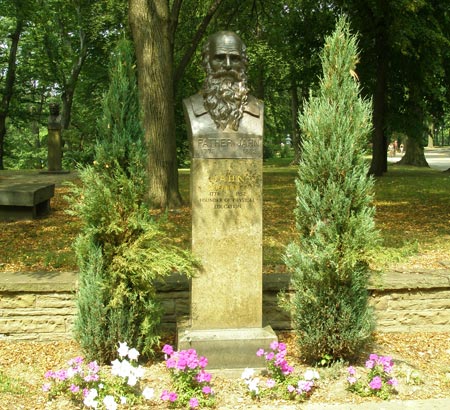
Father Jahn (1778-1852)
In 1811, gymnast Friedrich Ludwig Jahn organized the first gymnastic clubs, or "Turn Vereine," as they are known in Germany. Friedrich Jahn was (and still is) known as "Father Jahn" for having fathered the many athletic clubs and for being like a father to so many young men. He is also known as a great German nationalist. He was dismayed by the breakup of Prussia after the Napoleonic Wars in 1806 and fought for the renewal of the German nation. He was elected to the national parliament in Frankfurt in 1848. Jahn also started the "4F" movement as part of his athletic clubs, the four Fs standing for "Frisch, Fromm, Froehlich, Frei," which translate as "Fresh (in body and soul), Godfearing, happy, free."
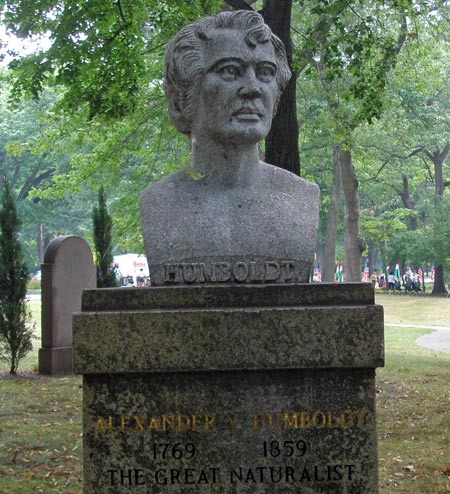
Alexander Humboldt (1769-1859)
"The Great Naturalist" Humboldt was called by Charles Darwin as "the greatest scientific traveler who ever lived." He is widely respected as one of the founders of modern geography. Alexander von Humboldt's travels, experiments, and knowledge transformed western science in the nineteenth century. Humboldt's quantitative work on botanical geography was vital to the field of biogeography.

Ludwig van Beethoven (1770-1827)
Ludwig van Beethoven was one of the giants of Classical Music. One of the three B's along with Bach and Brahms.
Back to Top
Back to Cleveland Germans |


